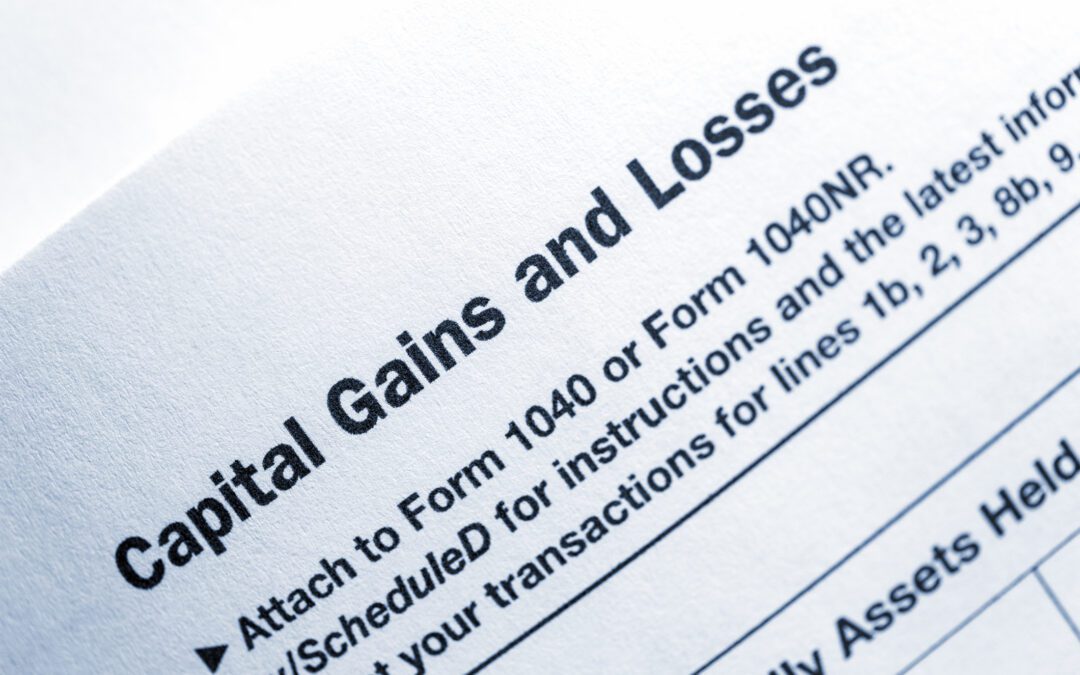
Are you planning ahead for your taxes to reduce your tax burden?
Taxes can be expensive, but there are strategies you can use to reduce your overall tax burden and avoid surprises come tax time. Ideally, you want to be as close to owing nothing (with no refund) as possible. As part of the financial planning process, your advisor will review your taxes from the previous year to identify strategies you can implement, such as bunching strategies, contributing to tax-qualified accounts, maximizing tax credits, or implementing Roth conversions.
Your advisor can help you plan ahead for your taxes by:
Working with you to optimize your taxes annually and following life events
Did you get a new job, get married, take out a student loan, buy a house, receive a raise, or have a child? These are examples of major life events that can impact not only your financial plan, but your taxes as well. When you work with your advisor to update your financial plan following these events or as a part of your annual review, they will also work with you to optimize your taxes. This could be as simple as updating your withholding or involve more complex strategies such as tax bracket management.
Staying on top of tax policy changes
Our advisors closely monitor tax policies and how they can affect your taxes. By understanding what tax policy changes may be coming, we can work with you to proactively strategize for the future.
Helping you plan for the tax impact of financial decisions
Financial decisions such as selling investments, exercising stock options, and donating to charity can affect your taxes. Before making decisions with tax implications, work with your advisor to understand how to minimize any negative impact or take advantage of tax benefits. For example, when giving to charity, you may want to consider bunching gifts with other qualified deductions to maximize the benefit from the standard deduction one year, followed by itemized deductions the next.
Did you know that your current investment choices affect your taxes in retirement?
It is important to plan for taxes not only over the next few years, but in retirement as well. Each different investment option comes with different tax considerations. Your advisor can work with you to develop a tax strategy alongside your investment strategy to reduce your tax burden both in the present and future.
Common Questions About Tax Planning:
I am worried about receiving a large tax bill (or refund), what should I do?
It is never fun to receive a large and unexpected tax bill at tax time. In order to avoid a large tax bill, or even a large refund, you need to review your W-4 form following any changes (marriage, salary, children, etc.) to ensure the correct amount continues to be withheld from your paycheck. This can prevent underpayment, which results in a tax bill, or overpayment, leading to a refund. Your advisor can help you evaluate your current withholding and recommend adjustments to ensure your tax payments are accurate, helping you avoid surprises and allowing you to maintain better financial stability throughout the year.
What are the tax implications of selling investments?
The tax implications of selling investments depend on the type of account the investments were held within. For example, in a brokerage account, the holding period and your income level play significant roles. Investments held for more than a year are taxed at long-term capital gains rates, which are generally lower than short-term rates for assets held less than a year. If your income exceeds certain thresholds, you might also be subject to the net investment income tax. Conversely, selling investments at a loss can offset other gains and potentially reduce your taxable income. Your advisor can work with you to understand the tax impact when selling investments and help you strategize to minimize any negative consequences.
I received a financial gift from a family member, is it taxable?
Generally, if you receive a financial gift from a friend or family member (not a business or as a prize), you are not responsible for any associated taxes. The person giving the gift may be subject to a gift tax, but there are annual and lifetime exclusions that often prevent the need for paying gift taxes. If a gift exceeds the annual limit, the giver may need to file a gift tax return, but it doesn’t necessarily mean they will owe taxes.
No one likes taxes. Learn how to minimize what you owe.
While we are legally required to pay taxes, there are various strategies that can be implemented to potentially reduce your tax burden. Are you taking advantage of them?
Articles Related to Tax Planning
Can I make a tax-deductible Traditional IRA contribution?
A Traditional IRA serves as a valuable tool for individuals seeking to save for retirement while deferring taxes. Nevertheless, several factors come into play when assessing eligibility for contributions and the potential tax deductibility of those contributions. Earned Income Eligibility…
How are my capital gains taxed?
Tax returns are complicated. To add to their complexity, investment income generated by your investment assets may be taxed differently than your other sources of income. Investment income includes capital gains and losses. What are capital gains and losses? If…
What is a donor-advised fund and how can I use one while bunching charitable contributions?
Bunching charitable contributions is a potential strategic option to lower your tax bill. Bunching contributions involves making multiple years’ worth of charitable contributions in a single year. This enables you to itemize deductions for that year while taking advantage of…
What IRS services are available online?
As part of the Inflation Reduction Act passed by Congress in August 2022, the Internal Revenue Service (“IRS”) recently released its plan for the nearly $80 billion in additional agency funding. A portion of the budget aims to improve technology…
Am I having enough taxes withheld?
Filing your taxes can be a daunting task. This is especially true when you are not confident that you had enough taxes withheld from your paycheck throughout the year. If you have had too little taxes withheld, you could end…
If I inherited an IRA, do I have to cash out? What is the 10-year rule?
An individual retirement arrangement (IRA), or more commonly referred to as an “individual retirement account,” is a tax-deferred investment account that helps you save for retirement. Tax laws that impact IRA distributions are quite complex. This is especially true for…
What are 529 College Savings Plans and their tax advantages?
As college costs continue to rise (the estimated cost per each year of college at a 4-year public university for today’s newborns is over $50,000 per the College Board, College Cost Calculator), it is important to evaluate different opportunities to…








